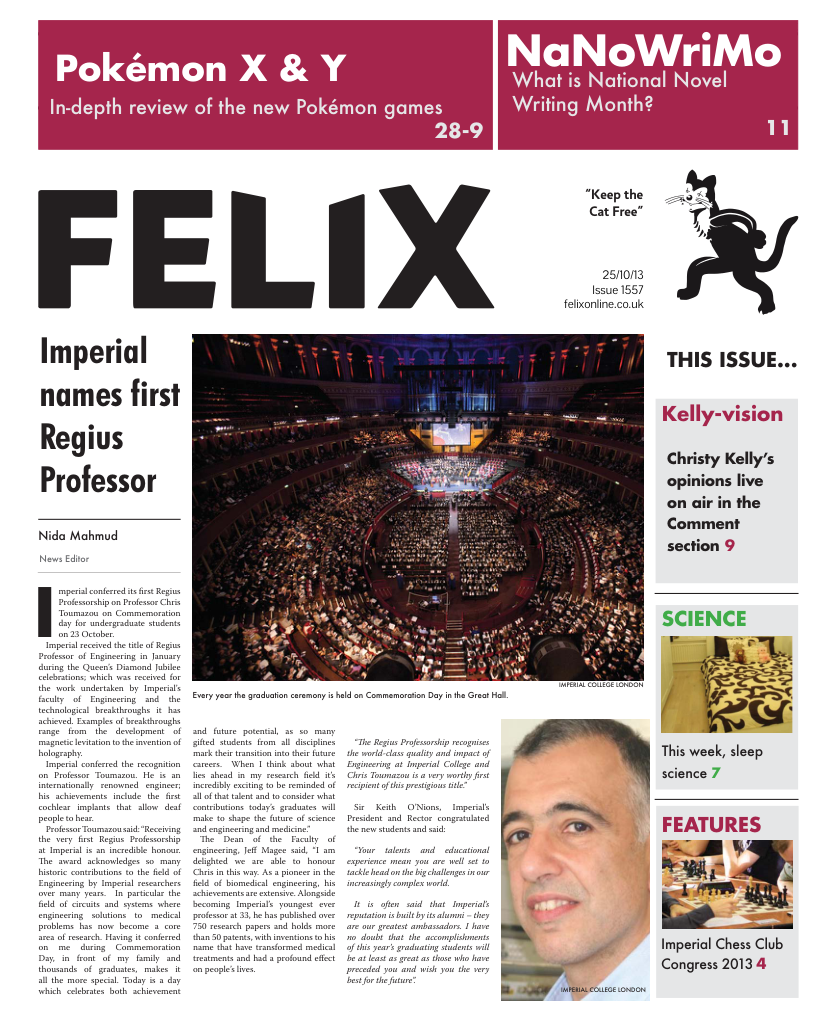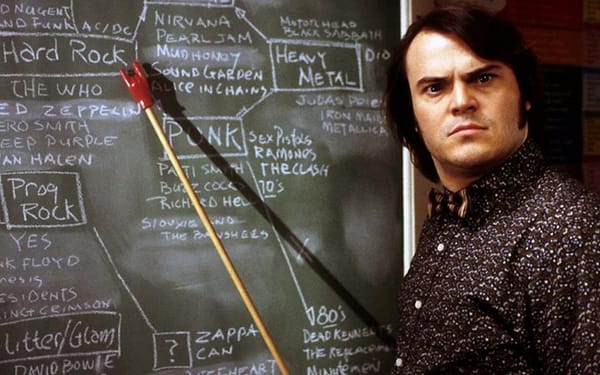Kelly-vison: How Noble are the Nobel Prizes?
Christy Kelly on the Nobel Prizes
With the unsurprising news that Higgs and French physicist Englert were awarded the 2013 Nobel Prize in Physics, I feel that I can indulge in cross-subject chauvinism. No other prizewinner this year will be given for something of such profound importance. The most important Chemistry prize was Rutherford... who was a physicist. We need to think of the limitations of these prizes. There’s the lack of gender equity in awarding prizes unilaterally beyond the sciences, keeping women out for much of their history. Likewise in literature, which recognised some great female authors by the start of the 20th century. The percentage of women awarded the Nobel Prize in Physics comes somewhere between the percentage of women in parliament in Oman and Yemen, the latter having the dubious honour of being lowest in the IPU’s list. I might suggest that the visibility of women on the Nobel Prize website does not function to ‘promote’ women. It covers up the Committee’s past promotion of iniquity. Physicists like to imagine that Physics and politics are two separate worlds. The inadequacy of this attitude became clear to me upon visiting Hiroshima. To tie the exalted heights of the Nobel Prize to worldly finance seems sacrilegious. Had Higgs and Englert not won the prize, some non-scientists may have asked questioned the point of the LHC. This isn’t to belittle the input into the theory, but note that official governmental attitudes follow the devastating doctrine of the Bologna Process, whose insistence on efficiency and competitiveness should be seen as a wholesale attack on education and research freedom. This is, to use idiotic phrases, “a time of austerity”. There are other dubious points in the Committee’s history. A Literature Prize without Tolstoy seems suspect. Is there anything in Kawabata but what orientalist racism makes of his work? A Peace Prize without Gandhi lacks all credibility. The Peace Prize is responsible for the most farcical award for peace in history, even more so than the Confucius Peace Prize award to Putin a couple of years ago. That is, of course, the joint award to Henry Kissinger and Le Duc Tho in 1973. Le Duc Tho, honourably, refused the prize. Kissinger — well known sponsor of military coups (Chile, Argentina) and avowed ally of Suharto of Indonesia, who not only led a corrupt and un-democratic regime, but also led Indonesia (with Kissinger’s approval) into invasion and mass criminal slaughter of the people of East Timor — did not. There have been sensible awards; few contest the awarding of the Peace Prize to Aung San Suu Kyii in 1991, and many will acknowledge the heroism of likely candidate Malala Yousafzai. It is hard to accept a Peace Prize awarded to those who should be punished for war crimes. A prize bearing the name of a famous arms dealer does not strike me as an endorsement for peace.






